The Iniquitous Agony of Literature
La inicua agonía de la literatura
Adriana Díaz Enciso
I must have been around eighteen when I showed up, my writings tucked under my arm, for the Elías Nandino Fine Arts literary workshop at the Ex-Convent del Carmen in Guadalajara, my hometown. This was a very long time ago, though not so long that I can’t remember approaching the workshop because I considered myself a writer. I knew I wanted to be one forever, and I needed to find others with an equal yearning, to form part of that dialogue and, essentially, to change my life. Then, as now, to me literature meant a vital way of being in the world, of knowing and interpreting it. It was also a starting point to get to know and imagine other worlds, to be carried away from myself and become another, to become others. It was a gateway to ecstasy, awe and beauty, and a means to delve into the experience of being human in this world and in others: those of the imagination.
Hence, I turned up for what was the second phase of the Elías Nandino workshop, and my life was indubitably transformed through sessions led by poets who had once been attendees themselves and were now at the helm of that space. Generous guides, friends, companions along the way. I remember Jorge Esquinca with special affection and gratitude, but the bonds I forged were many, many the affections. There, a timid teenager who was also adolescent in her naiveté and isolation became a true writer. If she learnt so much, it was precisely because her tutors and fellow workshop participants understood literature—and poetry in particular—as life. Conversations, pursuit and kinship continued beyond the workshop sessions: in cafés, in the cultural venues that kept stubbornly popping up in what was then an utterly conservative city, and in that city’s streets. We were reading and creating literature, we were living—or learning to live, a lesson that never ends—and one thing couldn’t be understood without the other.
Publication (in newspapers and magazines at first, then books) were natural fruits of this process of learning fuelled by comradeship and a passion for writing. True, it was a National Fine Arts Institute workshop, but there was nothing institutionalised about its activities. It was a space of freedom not only for creation, but also for literary and existential questioning and, most importantly, for reading: the reading of our contemporaries, undoubtedly, but also of the great masters of the past, pillars of a most fertile tradition of Mexican, Latin American and world literature. To learn and apply oneself to work at that forge with a dedication that was almost communal mattered more than the notion of success. No, the Elías Nandino workshop was not a school.
The many creative spaces that continued to transform my life in Guadalajara and, later on, in Mexico City over the decades weren’t schools either. Alliances were multiplied, and it is perhaps more accurate to speak of fellowship, fraternity. There were also splits, equally passionate. In our discussions about one author or another, about an artistic principle or an ethical consideration, our lives hung in the balance. Literature existed, it mattered. It was possible to follow in the footsteps of those who had walked the path before us—trails blazed with the fervour and devotion that a vocation demands. It was also possible to differ, to reason with them, even if many of them were already dead, and to surrender oneself to that same call without risking any insurmountable rupture between life and literature. Looking back in hindsight, I think that existential crises and all, we were happy to a great extent, though perhaps we didn’t always know it.
The plague of “creative writing”, with its accompanying host of depressants of the inspired spirit, had not yet descended upon us.
It is true that creative writing programmes were first established decades ago in several universities, in particular in the United States, though the trend was extended to other countries as well. But the bombardment of adverts about schools, courses and resources of creative writing that we’ve been subjected to in recent years, reinforced by the meddlesome presence of the web in our lives (and let’s not even speak of what has happened during the pandemic) has taken on an insufferable forcefulness that goes hand in hand with the earnest exertions of the publishing industry, the culture of celebrity, and the social engineering of our times to dry up the fountain of literature, and any other artistic manifestation along with it.
Something essential—a spontaneity, a freedom of spirit, a human way of living and relating to reading and writing—is undermined every time we receive an email (often unsolicited) in which we are invited to take part in a literary event or competition, or send contributions to some journal, written in the fake upbeat jargon of publicity, showing us the high-definition pictures of smiling authors or editors. Such language seems to take for granted that all the recipients of these messages form part of a perfectly integrated and aseptic society in which literature is as useful, as coveted and as common as the car, holidays, or the vacuum cleaner.
The quality of the events, authors and books being announced is of course variable. Sometimes they signal the discovery of true creators, men and women truthful to a call, whose voices stimulate and nurture us. Other times the announcement is about arrivistes engorged with an inane discourse: shameless hucksters. The gradations between both extremes are infinite, but the language that articulates their promotion is one and the same. The ideal of a necessary democratisation of culture was quickly ravaged by the inveterate notion that everything that is of any value in our (global) society is by necessity a commodity, and that, as such, its function is to satisfy cravings, which are transient by definition; to make equal, to standardise, to iron out any differences that the status quo may consider offensive and, in short, to make us all conform. Risk is out, and what’s left is a puerile parody of culture offered as entertainment.
What has become of the urge to discover and question our human life, to take risks, propose new visions and clear the way for our own existence, without which literature simply cannot exist? Nowadays, save noble and ever more heroic exceptions, institutions, publishers, the academy, awards, book fairs, the self-publishing world, the reading audience and, even worse, more and more authors speak from a common front, a firmly structured system with clear promotion ladders and rules both of inclusion and excommunication, on the understanding that whoever considers themselves an author must be within that system, tacitly accepting the rules of the game. Those who don’t, according to this system’s criteria, are a nonentity.
While in the not so distant past it was possible to find interlocutors for a vital dialogue in and around literature, such a pursuit has now become burdensome and sombre, for it seems almost impossible to find anything if not through the filters of this vociferous regime. It’s not that there are no true writers anymore, of all ages, genres and everywhere on the planet; they are there, but the infrastructure that has been insidiously growing over the past few decades pulls bridges down and severs bonds in its eagerness to push us all—authors and readers—into a kind of events room at a five (or rather four) star hotel, so that we may “network” in an infinite cocktail party. Those who refuse to enter are silently rubbed out, their names deleted from the new, self-appointed literary community. If the person is already famous enough to make it impossible to obliterate their name, then the meaning of their work is distorted; it’s simplified, tenderised, domesticated, so that readers become incapable of registering a single page that rocks the boat. And if the work of the author in question is so very powerful that every intent to sell it as if it were a tame animal fails, there are the omnipresent trigger warnings to draw upon. Beware: reading this work may give you back your humanity.
This system is perverse enough to call itself “inclusive”. Everywhere it’s calling out to us: “Come, write, tell your story, discover your creativity. You too can become a writer.” Whereas the naïve and/or vain are tricked or yield, those who are often excluded are genuine authors, those who do not conform. Those who know that this is not the way literature is created. Little by little we become pariahs from our own craft—a “professionalised” trade, whose aim is to guarantee that the best product is offered. That is, one that pleases all.
The feeling of exile and disorientation is profound.
Creative writing teachers are, of course, writers themselves. It’s important to bear in mind that teaching is one of the ways in which many authors earn their living, and in many cases it is a genuine work of love. Nevertheless, unfortunately authors tend to be the last ones gaining any benefit from the lucrative business this boom of schools and courses represents. In the summer issue of The Author, The Society of Authors magazine, Alice Jolly speaks frankly about the exploitation that she and other authors teaching creative writing are subject to. I’m not surprised; I know in my own experience how it goes—I have also taught some so-called courses, though if it depended on me and not on the institutions or online schools, I’d still call them literary workshops, which is what’s worth rescuing. In a previous piece in this space, Literal’s readers have already read my denunciation of the exploitation that continuously affects authors and literary translators, so I won’t elaborate on the matter now.
However, I find in Jolly’s piece another concern that I share: that of the impossible tangle in which creative writing teachers find themselves in when they sincerely try to share with their students their passion for literature and act as devoted guides, but cannot possibly meet those students’ expectations, kindled by the courses’ publicity, of immediate triumph and publishing. Many of these courses include modules about how the publishing industry does business, or about how to find an agent. There are also heaps of adverts of independent workshops and webinars about these matters, while in universities the creative writing MA and PhD programmes proliferate. But who, in heaven’s name, among those authors whose work has most enriched humanity, has ever become a writer this way? What kind of mind can envisage that a literary vocation is recognised when someone tells him or herself: “I’m going to enrol in a school so that they teach me how to write”?
Regrettably, it seems that such nonsense can be envisaged by quite a few minds, muddled by naivety, but also by monetary interests, ambition (one that is not precisely literary), the illusion to become a best-seller, or God only knows what.
The results have been already visible for a while in what is written and, in fact, published. Michael Schmidt, poet, founder of Carcanet and editor of the PN Review, mentions in an interview the effect that the huge amount of writing courses nowadays has on the kind of submissions sent to that journal. He states that many poems that have clearly been polished in that kind of course can be convincing at first sight, and that many among them are truly good, but there are others that are hollow despite such fine-tuning, which makes discerning more difficult.
His comment caught my attention because I sometimes read poems or novels (the latter often the recipients of multiple awards and translated into many languages) that are quite a shrewd spectacle and yet leave me cold. I’m talking about texts that are “well-written”, in which it’s difficult to find major flaws, but which, to me, are not literature. Texts and books that immediately make me think they are the product of a creative writing course. That is to say, literature created with moulds. And it is those moulds that most agents and publishers consider acceptable. Therefore, inexperienced readers consume more and more of those well-written books and end up thinking that that is literature. A piece of work that is clever, competent and dead.
Am I exaggerating? I don’t think so. The moulds are hawked everywhere. The rules of the game are shamelessly repeated in tiresome cacophony. Courses and competitions are announced everywhere without respite, along with the girdle that sustains them. A while ago I wrote in my blog about the astonishing guides published every year by the National Poetry Award in the UK. There I talk about the intrinsic perversity of a literary competition that offers the contestants guides “to write a winning poem”; guides, it goes without saying, that infantilise poets and which aren’t any deeper than what you’d expect of a literature (sorry, creative writing) class in high school. The award’s announcement, indeed, has been issued again this year in the same format, with explanations of poems and “writing prompts” for the poets who might want to take part. I would have thought that if a poet needs to be given ideas, then he or she is not so much of a poet, or that poem in particular isn’t in pressing need to be in the world, let alone to be entered in a competition. Unless—and this is the crux of the matter—this is all about writing poems specifically to enter a competition, tailored to its rules.
Sadly, that is precisely what all this is about. In one of the emails with supposedly literary content that have swamped my inbox during the past month, a well-known magazine announces its short story competition with the heading “This is what A L Kennedy (the judge this year) wants to read from you”. The award will come along with a consultation with a literary agent, and the announcement includes the inevitable “guide” for the contestants: a school guide for amateur writers that no author who knows what they’re doing needs, and that they would find rather offensive. I wonder if this is really the purpose of our new literary milieu, so inseparable from the publishing industry: to find amateur authors, tame them and shove them into the market, stripping literature of all dignity, all depth, all mystery and all wonder. Many of those authors shall be very young (the language used in these competitions is, as I have already mentioned, more fitting for children and teenagers). And, evidently, youth is a fundamental component of what the market seeks. I’ll explain.
When I look, for instance, at the literature translated from other languages that is now published in the UK, I undoubtedly celebrate that literary translation is growing and allowing for what is being written in other parts of the world to reach a country that, up to a couple of decades ago, didn’t manage to venture much beyond its own English canon. However, I am concerned to see that the great majority of the translated authors are young and, at the oldest, rarely more than 40 or 45 years old; that is to say, authors that represent the generations in which a literary career became a marketing endeavour driven by a greedy publishing industry with unprecedented impudence. The authors in question can be extraordinary, or not. It depends. But, I wonder, won’t those countries from which so many books reach us now have also authors with a solid career of decades behind them who have something important to say that is worth reading elsewhere on the planet? Won’t they have, in fact, in their tradition authors already dead who would make many readers in other languages very happy, and who in fact would give us a context to read the younger ones better? But it is no secret; agents, publishers, everybody in literary cliques say so: there is interest in young authors only, and they must have a “strong online presence” and many awards under their belt, even if the once honourable tradition of literary awards is by leaps and bounds becoming a dangerous exercise in endogamy that we can hardly ignore.
Don’t take me wrong. Reading the great young authors enriches us all, and it is quite exciting to discover new powerful voices. But the loss involved in burying in oblivion all those who don’t boast that element of novelty is incalculable, and it shapes a new canon ruled by meretricious rules that are insidiously distorting the very concept of literature.
Hand in hand with this cult of youth is the vogue of youth poet laureates, that oxymoron (and, indeed, in the second part of these reflections I will talk about Amanda Gorman). How is that? Who, that is not a true genius, merits to be crowned with laurels at 20 or 22? The mere notion is not only ridiculous; it subjects these young people to an unfair pressure that some of them might not perceive, dazzled by the honour and fame, but that may well destroy, if not their “career”, their literary vocation. The honour bestowed on them is in itself institutional, which implies feeding these young authors on one go into the system. Very few, I fear, and very brave, will be those who don’t find their pursuit and authentic voice smothered this way.
Let us think of Rimbaud, the precocious poet par excellence. Let us imagine him as the “youth poet laureate” of the 1870s France. Isn’t that an atrociously ridiculous notion? Wouldn’t he have rejected the honour with not a few expletives, trampled on the figurative crown, and run away? Rimbaud’s poetry is still alive; it keeps on nourishing us in mind and spirit. It is, in the humble measure of everything that’s human, immortal. No doubt Rimbaud was difficult to deal with, a man who could inspire devotion as much as fear or outrage, and perhaps not many would want today, if they could, invite him to their parties (or publishers’ soirées), but he was a magnificent poet, and—an imperative condition to be so—a free poet.
It is freedom itself that is under siege. The onslaught is relentless. “Write this and that”. “How to write your first page”. “How to write about climate emergency”. “How to write your blog”. “How to write a winning poem”. And as to events, in person or online, readings, courses or festivals, they have hardly ended when we’re already plagued by the surveys to measure their effectiveness, as is the case with every product and service now, making life inhabitable, demanding of us a rating for every single human interaction we engage in. It may be that this whole circus is set up with the best intentions, but good intentions don’t necessarily lead to safe harbour if they stem from mechanically following the herd.
I started these pages writing about the scourge of “creative writing” because, whilst some modules in these courses and schools may seem indistinguishable from a literature class or literary workshop, literature and the more noble and humble notion of workshops have been eliminated from their designation. The trend started by an often incontinent and sterile academy fell into the hands of the greedy market, and together they nowadays are bent on wiping literature off the map, all the while boasting of the wealth of “opportunities” they offer by laying writing within everyone’s reach, of their inclusiveness and diversity. Is it really possible that nobody can see what is being destroyed? One look at the biography of the great authors in universal history is enough to understand that this is not the way that literature is created, no matter how many diplomas, awards, MAs and PhDs you have. This is not the way to create meaning, to inquire into human nature or the experience of being alive in this world. Not one of those great authors would have subjected themselves to such ignominy. Had they done so, neither them nor their work would have survived. Where did the dignity of the literary craft go? What has become of the curiosity, adventure, risk and joy in creation? Not to mention responsibility.
Writers, I’ve said it before, are the first to be exiled through this gross appropriation of what used to be our trade. For my part, and just as when I was eighteen, I still need companions along the way, and luckily they are there, but to some extent we all suffer the wounds of this exile. If nowadays any attempt at being part of a literary community involves a tremendous sense of orphanhood it is because the said community has become smaller, weaker, subjugated by this fair of vanities and inanity that, in our times, calls itself the literary world. We are losing the liberating, spirited, mysterious and transcendent essence of words.
Why do we accept it so meekly?
Tendría unos 18 años cuando llegué con mis escritos bajo el brazo al Taller de Literatura Elías Nandino, del INBA, en el Ex-Convento del Carmen de mi natal Guadalajara. De esto hace muchísimo tiempo, aunque no tanto que no pueda recordar que me acerqué al taller porque me creía escritora, sabía que quería serlo siempre, y necesitaba encontrar a otros con un afán igual, ser partícipe de un diálogo y, fundamentalmente, cambiar mi vida. La literatura entonces, como ahora, significaba para mí una forma vital de estar en el mundo, de conocerlo, de interpretarlo. Era también un punto de partida para conocer e imaginar otros mundos, para ser arrebatada de mí y ser otra, otros; era una puerta de acceso al éxtasis, al asombro y la belleza, y el camino para indagar en la experiencia de ser humana en este mundo y en los otros: los de la imaginación.
Llegué, pues, a la que era ya la segunda encarnación del Taller Elías Nandino, y mi vida ciertamente se transformó a través de esas sesiones guiadas por poetas que habían sido talleristas también y ahora dirigían dicho espacio. Guías generosísimos, amigos, compañeros en el camino. Recuerdo con especial cariño y gratitud a Jorge Esquinca, pero fueron muchos los lazos que se establecieron entonces, muchos los afectos, y la adolescente que llegó al taller con timidez, que adolecía también de ingenuidad y de aislamiento, ahí se hizo escritora de verdad. Si aprendió tanto fue porque sus tutores y los otros talleristas entendían la literatura —y en particular la poesía— como vida, precisamente. La conversación, la búsqueda y las alianzas continuaban más allá de las sesiones del taller: en cafés, en los recintos culturales que neciamente seguían asomando la cabeza en la que entonces era una ciudad por demás conservadora, y en las calles de la ciudad. Estábamos leyendo y creando literatura, estábamos viviendo —o aprendiendo a vivir, lección que no se acaba nunca— y no podía entenderse una cosa sin la otra.
Las publicaciones (en periódicos y revistas, y después los libros) eran frutos naturales de este proceso de aprendizaje avivado por la camaradería y la pasión por la escritura. El taller, sí, era del INBA, pero no había nada en sus actividades que fuera institucionalizado. Era un espacio de libertad no sólo para la creación, sino también para cuestionamientos literarios y existenciales y, muy importante, para la lectura: la lectura de nuestros contemporáneos, sin duda, pero también la de los maestros del pasado, la de los pilares de una tradición riquísima de literatura mexicana, latinoamericana y mundial. Importaba más aprender y aplicarse al trabajo en esa fragua, con una entrega que era casi comunal, que el concepto del éxito. No, el taller Elías Nandino no era una escuela.
No lo fueron tampoco los muchos espacios creativos que siguieron transformando mi vida en Guadalajara y, después, en la Ciudad de México durante décadas. Las alianzas se multiplicaron, y quizá sea mejor hablar de hermandades. Hubo rupturas también, igualmente apasionadas. En las discusiones sobre este o aquel autor, principio artístico o consideración ética se nos iba la vida. La literatura existía, importaba. Era posible seguir la ruta de los que habían andado el camino antes que nosotros —rutas trazadas con el fervor y la entrega que exige una vocación—. Era posible divergir también, hablar con ellos, aunque muchos estuvieran muertos, y entregarse a ese mismo llamado sin que hubiera fracturas insalvables entre vida y literatura. Que el camino a menudo era arduo, es verdad. Nos quejábamos a veces de falta de “oportunidades”, en una sociedad que en gran medida simplemente ignoraba a la literatura. Viéndolo desde la distancia, yo creo que éramos, pese a las crisis existenciales, en gran medida felices, aunque quizá no siempre lo supiéramos.
Todavía no caía sobre nosotros la plaga de la “escritura creativa”, con las huestes de depresores del hálito creador que la acompañan.
Es cierto que los programas de escritura creativa empezaron a establecerse desde hace décadas en varias universidades, en particular en los Estados Unidos, aunque la tendencia se extendió también a otros países. Pero el bombardeo de anuncios de escuelas, cursos y recursos de escritura creativa de que somos objeto a últimos años, redoblado por la entrometida presencia de la red en nuestras vidas (y ya ni hablar de lo que ha pasado durante la pandemia), ha adquirido una agresividad intolerable, que va de la mano con los esfuerzos denodados de la industria editorial, la cultura de la celebridad y la ingeniería social de nuestros tiempos por agostar la fuente de la literatura, y de cualquier otra manifestación del arte.
Algo esencial —una espontaneidad, una libertad del espíritu, una forma humana de vivir y relacionarse con la lectura y la escritura— se socava cada vez que recibimos un email (a menudo no solicitado) en que se nos invita a participar en un evento literario, en un concurso, o a enviar colaboraciones a alguna publicación, redactado en la jerga de falsa animación de la publicidad, mostrándonos las fotografías de altísima definición de sonrientes autores o editores. Dicho lenguaje parece dar por sentado que todos los receptores de estos mensajes formamos parte de una sociedad aséptica perfectamente integrada, en la que la literatura es tan útil, tan deseada y tan común como el automóvil, las vacaciones, la licuadora.
Los eventos, autores y libros anunciados son, por supuesto, de calidad variable. A veces significan el descubrimiento de verdaderos creadores, de hombres y mujeres fieles a un llamado cuya voz nos estimula y alimenta. Otras veces se anuncia a advenedizos hinchados de un discurso inane, desvergonzados mercachifles. Las gradaciones entre los extremos son infinitas, pero el lenguaje con que se articula la promoción es el mismo para todos. El ideal de una necesaria democratización de la cultura muy pronto se vio estragado por la noción inveterada de que todo lo que tiene algún valor en nuestra sociedad (global) es necesariamente un producto de consumo, y de que, como tal, su función es satisfacer antojos, por definición pasajeros; igualar, uniformar, limar cualquier diferencia que el statu quo considere altisonante, y volvernos, en fin, conformes. Se acabó el riesgo, y lo que queda es un pueril remedo de cultura ofrecido como entretenimiento.
¿Qué ha sido del impulso de descubrir y cuestionar la humana vida propia, de correr riesgos, proponer otras visiones y franquear el camino de nuestra propia existencia, sin el que la literatura simplemente no existe? Hoy día, salvo honrosas y cada vez más heroicas excepciones, instituciones, editoriales, la academia, premios, ferias del libro, el mundo de la autopublicación, público y, peor aún, cada vez más autores y autoras, hablan desde un frente común, un sistema firmemente estructurado, con sus muy claros escalafones y reglas tanto de inclusión como de excomunión, en el entendido de que quien se considere escritor debe estar dentro de ese sistema, aceptando tácitamente las reglas del juego. Quien no lo hace, según los criterios de este sistema, es un cero a la izquierda.
Si antes era posible encontrar interlocutores para un diálogo vital en y alrededor de la literatura, ahora la búsqueda se ha vuelto pesada y sombría, pues parece casi imposible encontrar nada si no es pasando por los filtros de este régimen vociferante. No es que no sigan existiendo verdaderos escritores, de todas las edades, de todos los géneros y todos los rincones del planeta, pero la infraestructura que se ha ido erigiendo insidiosamente en las últimas décadas derriba puentes y corta lazos, en su afán por meternos a todos —autores y público lector— en una especie de salón de eventos de hotel de cinco (o más bien cuatro) estrellas para “hacer contactos”, en un infinito coctel. A quien no quiera entrar, silenciosamente se le desaparece, borrando su nombre de una nueva y autonombrada comunidad literaria. Si la persona es ya lo suficientemente famosa como para que borrar su nombre sea imposible, se tergiversa entonces el sentido de su obra; se simplifica, se le ablanda y amansa para que los lectores no sepan ya leer ahí ni una sola página que levante olas. Y si la obra del autor o autora en cuestión es tan, pero tan poderosa que todo intento de venderla como si se tratara de un manso animal fracasa, se echa mano de la advertencia (el omnipresente trigger warning). Cuidado: la lectura de esta obra te puede devolver tu humanidad.
Este sistema es suficientemente perverso como para decirse “inclusivo”. Por todas partes llama: “Ven, escribe, cuenta tu historia, descubre tu creatividad. Tú también puedes ser un/a escritor/a”. Mientras que los ingenuos y/o los vanidosos caen, los que a menudo quedan excluidos son los escritores genuinos. Los que no se conforman. Los que saben que no es así como se crea la literatura. Poco a poco nos vamos convirtiendo en parias de nuestro propio gremio: un gremio “profesionalizado” para garantizar que se ofrezca el mejor producto. Es decir, uno que complazca a todos.
La sensación de exilio y desorientación es profunda.
Los profesores de escritura creativa son, por supuesto, escritores ellos mismos. Es importante tomar en cuenta que la docencia es una de las formas de ganarse la vida de muchos autores, y en muchos casos es una genuina labor de amor. No obstante, por desgracia los escritores suelen ser los últimos en beneficiarse del negocio redondo que significa este auge de escuelas y cursos. En el número de verano de The Author, revista de The Society of Authors, la autora Alice Jolly habla con franqueza de la explotación de que son objeto ella y muchos otros autores que enseñan escritura creativa. No me sorprende; sé cómo va la cosa por experiencia propia —yo también he dado algunos cursos así denominados, aunque si dependiera de mí, y no de las instituciones o escuelas en línea, yo les seguiría llamando talleres literarios, que es lo que vale la pena rescatar—. En una entrega anterior en este espacio, los lectores de Literal ya habrán tenido la oportunidad de leer mi denuncia de la explotación de que somos objeto continuamente escritores y traductores literarios, así que no abundaré más en ese tema por el momento.
Encuentro sin embargo en el artículo de Jolly otra preocupación que comparto: la del enredo imposible en que se meten los profesores de escritura creativa que intentan sinceramente compartir su pasión por la literatura con sus alumnos y ser una guía devota, pero no tienen más remedio que enfrentar las expectativas de dichos alumnos, encendidas por la publicidad misma de los cursos, de triunfo y publicación inmediatos. No faltan en estos cursos las materias (optativas o no) sobre los tejemanejes de la industria editorial actual, o sobre cómo conseguir un agente. También se anuncian a granel talleres presenciales y “webinars” sobre estos temas, mientras que en las universidades proliferan los programas de maestrías y doctorados de escritura creativa. ¿Pero quién, por todos los dioses, entre los autores y autoras que más le han dado a la humanidad a través de su obra, se ha hecho escritor de esta manera? ¿En qué cabeza cabe pensar que la vocación literaria se reconoce cuando una persona se dice: “voy a meterme a una escuela para que me enseñen a escribir”?
Por desgracia, parece que el desatino cabe en muchísimas cabezas. Cabezas llenas, a menudo, de ingenuidad, pero también de intereses monetarios, de ambición (y no precisamente literaria), de la ilusión de convertirse en best-seller, qué sé yo.
Los resultados se dejan ver ya desde hace tiempo en lo que se escribe y, de hecho, se publica. El poeta, fundador de la editorial Carcanet y editor de la PN Review, Michael Schmidt, menciona en una entrevista el efecto que tiene la gran cantidad de cursos de escritura que existen en la actualidad en el tipo de propuestas de colaboración que se envían a la revista mencionada. Afirma que muchos poemas claramente tallereados en este tipo de cursos son a primera vista convincentes, y que varios entre ellos son verdaderamente buenos, pero que otros resultan huecos pese a su refinamiento formal, lo que vuelve más difícil el discernimiento.
Su comentario me llama la atención porque en ocasiones he leído poemas, o novelas (éstas a menudo multipremiadas y traducidas a múltiples idiomas) que dan el gatazo y, sin embargo, me dejan fría. Estoy hablando de textos “bien escritos”, a los que no se les puede encontrar mayor defecto, pero que no son, para mí, literatura. Textos y libros que inmediatamente me hacen pensar que son producto de un curso de escritura creativa. Es decir, literatura creada con moldes. Y son esos moldes los que agentes y editoriales consideran aceptables. Por lo tanto, el lector no avezado va leyendo cada vez más de esos libros bien escritos y termina pensando que eso es la literatura. Una creación astuta, “competente”, y muerta.
¿Exagero? No lo creo. Los moldes se pregonan por todas partes. Las reglas del juego se repiten sin pudor hasta la cacofonía. Cursos y concursos se anuncian por doquier y sin tregua, a la par que los corsés que los sostienen. Hace tiempo escribí en mi blog (en inglés) sobre las pasmosas guías publicadas cada año por el Premio Nacional de Poesía (National Poetry Award) en el Reino Unido. Ahí hablo de la perversidad intrínseca en un concurso literario que ofrece a los competidores guías “para escribir un poema ganador”; guías, está por demás decirlo, que infantilizan al poeta y que no son más profundas de lo que se esperaría de una clase de literatura (perdón, de escritura creativa) en la preparatoria. Efectivamente, la convocatoria de este año ha aparecido ya en el mismo formato, con explicaciones de poemas y “sugerencias de escritura” para los poetas que quieran concursar. Yo pensaría que, si un poeta necesita que le den ideas, entonces no es tan poeta, o ese poema en particular no tiene una necesidad imperiosa de estar en el mundo, ya no digamos de entrar a un concurso. A menos que —y este es el meollo del problema— el asunto se trate de escribir poemas específicamente para entrar a un concurso, adecuados a sus reglas.
Y por desgracia, sin duda de eso precisamente se trata el asunto. En uno de los emails con tema supuestamente literario que han acribillado mi buzón en el último mes, una conocida revista anuncia su concurso de cuento con el encabezado “Esto es lo que A L Kennedy (la jurado este año) quiere leer de ti”. El premio vendrá acompañado de una asesoría con un agente literario, y la convocatoria aparece con la consabida “guía” para los concursantes: una guía de escuelita para escritores amateurs que ningún autor o autora que sepa lo que está haciendo necesita, y que encontraría más bien ofensiva. Me pregunto si de verdad es ese el propósito de nuestro nuevo medio literario, tan inseparable de la industria: encontrar autores amateurs, domarlos y meterlos a empujones al mercado, despojando a la literatura de toda dignidad, toda hondura, todo misterio y toda sorpresa. Muchos de esos autores serán muy jóvenes (el lenguaje utilizado en estas convocatorias es, como ya he dicho, más adecuado para niños y adolescentes). Y el elemento de la juventud a todas luces es parte esencial de lo que busca el mercado. Me explico.
Cuando veo la literatura traducida de otras lenguas que se publica ahora, por ejemplo, en el Reino Unido, celebro por supuesto que la traducción literaria esté encontrando un auge y dando cabida a lo escrito en otras partes del mundo en un país que, hasta hace un par de décadas, no lograba aventurarse mucho más allá de su propio canon en lengua inglesa. Sin embargo, me preocupa observar que la gran mayoría de esos autores son jóvenes, y, cuando mucho, rara vez más allá de los 40, 45 años; es decir, autores representantes de las generaciones en que la carrera literaria se convirtió con más desfachatez que nunca en un ejercicio de mercadotecnia impulsado por una codiciosa industria editorial. Los autores en cuestión pueden ser buenísimos o no, depende. ¿Pero no tendrán también, me pregunto, esos países de los que ahora nos llegan tantos libros, autores con una sólida carrera de décadas que tengan algo importante que decir, que valga la pena leer en otros lugares del planeta? ¿No tendrán, de hecho, en su tradición autores ya fallecidos que harían felices a muchísimos lectores en otra lengua, y que de hecho nos darían un contexto para leer mejor a los más jóvenes? Pero no es un secreto; agentes, editoriales, todos en el mundillo literario lo dicen: solo hay interés en autores jóvenes, con una fuerte presencia en la red y muchos premios bajo el brazo, aunque la alguna vez honrosa tradición de los premios literarios se esté convirtiendo a pasos agigantados en un peligroso ejercicio de endogamia que difícilmente podemos ignorar.
Que no se me malinterprete. Leer a los grandes autores jóvenes a todos nos enriquece, y es además muy emocionante descubrir nuevas voces valiosas. Pero la pérdida que sigue al entierro en el olvido de quienes no cuenten con ese elemento de actualidad es incalculable, y va moldeando un nuevo canon regido por leyes meretricias que están deformando insidiosamente el concepto mismo de literatura.
De la mano de este culto a la juventud viene la moda de los jóvenes poetas laureados, ese oxímoron (y sí, en la segunda parte de estas reflexiones hablaré de Amanda Gorman). ¿Cómo es eso? ¿Quién, que no sea un verdadero genio, amerita ser coronado con laureles a los 20, 22 años? La noción no es solamente ridícula, sino que somete a estos jóvenes a una injusta presión que quizá algunos no perciban, encandilados por la honra y la fama, pero que bien puede destruir, si no su “carrera”, sí su vocación literaria. La distinción concedida es ya en sí misma una distinción institucional que implica meter de golpe a estos jóvenes autores al sistema. Serán pocos, me temo, y muy valientes, los que no vean asfixiada de esta manera su búsqueda y su auténtica voz.
Pensemos en Rimbaud, el poeta precoz por excelencia. Imaginémoslo como el “joven poeta laureado” de la Francia de la década de 1870. ¿No es una noción bárbaramente ridícula? ¿No habría él rechazado el honor con un par de insultos, pisoteado la figurativa corona y echado a correr? La poesía de Rimbaud sigue viva, nos sigue alimentando en mente y espíritu. Es, en la humilde medida de lo humano, inmortal. Sin duda Rimbaud fue un hombre de trato difícil, que podía inspirar tanto devoción como temor o indignación, y a lo mejor no muchos quisieran hoy día, si pudieran, invitarlo a sus fiestas (o cocteles de editorial), pero fue un poeta grandioso y, condición indispensable para serlo, un poeta libre.
Es la libertad misma la que está bajo asedio. Las embestidas no cesan. “Escribe esto y esto otro.” “Cómo escribir tu primera página.” “Cómo escribir sobre la emergencia climática”. “Cómo escribir tu blog”. “Cómo escribir un poema ganador”. Y en lo que toca a los eventos, presenciales o en línea, a las lecturas, cursos, festivales, apenas terminan y ya nos persiguen las encuestas para medir su efectividad, igualitas a las de todos los productos y servicios que vuelven la vida actual inhabitable, exigiéndonos una calificación por cada interacción humana en la que participamos. Puede que todo este circo esté montado con las mejores intenciones, pero las mejores intenciones no necesariamente llevan a buen puerto, si provienen de un mecánico seguir a la manada.
Empecé estas páginas escribiendo sobre el azote de la “escritura creativa” porque, si bien algunos módulos de estos cursos y escuelas pueden parecer indistinguibles de una clase de literatura o de un taller literario, deliberadamente se han eliminado de su denominación la literatura y la más noble y a la vez humilde noción del taller. La tendencia iniciada por una academia a menudo incontinente y estéril cayó en las manos del codicioso mercado y entre ambos se encargan hoy día de borrar la literatura del mapa, al tiempo que se pavonean por la cantidad de “oportunidades” que ofrecen, por poner la escritura al alcance de todos, por su inclusividad y diversidad. ¿Es que de verdad nadie se da cuenta de lo que está siendo destruido? Basta con echar una ojeada a las biografías de los más grandes autores y autoras de la historia universal para entender que no es así como se crea la literatura, aunque tengas decenas de diplomas, premios, maestrías y doctorados. No es así como se crea significado, como se indaga en la naturaleza humana ni en la experiencia de estar vivo en el mundo. Ni uno solo de esos grandes autores y autoras se habría sometido a semejante ignominia. De haberlo hecho, ni ellos ni su obra habrían sobrevivido. ¿Dónde quedó la dignidad del oficio literario? ¿A dónde han ido a parar la curiosidad, la aventura, el riesgo y el gozo de la creación? La responsabilidad, también.
Los escritores, ya lo he dicho, somos los primeros exiliados merced a esta grosera apropiación de lo que fuera nuestro oficio. Por mi parte, igual que cuando tenía 18 años, sigo necesitando compañeros en el camino, y por fortuna los hay, pero de una manera u otra todos padecemos las heridas de este exilio. Si hoy día cualquier intento de ser parte de una comunidad literaria conlleva una sensación tremenda de orfandad, es porque dicha comunidad es cada vez más exigua, más débil, avasallada por la impostura de esta absurda feria de vanidades e inanidad que se hace llamar en nuestros tiempos el mundo literario. Estamos perdiendo la esencia liberadora, combativa, misteriosa y trascendente de la palabra.
¿Por qué lo aceptamos con tanta mansedumbre?
 Adriana Díaz-Enciso es poeta, narradora y traductora. Ha publicado las novelas La sed, Puente del cielo, Odio y Ciudad doliente de Dios, inspirada en los Poemas proféticos de William Blake; los libros de relatos Cuentos de fantasmas y otras mentiras y Con tu corazón y otros cuentos, y seis libros de poesía. Su más reciente publicación, Flint (una elegía y diario de sueños, escrita en inglés) puede encontrarse aquí.
Adriana Díaz-Enciso es poeta, narradora y traductora. Ha publicado las novelas La sed, Puente del cielo, Odio y Ciudad doliente de Dios, inspirada en los Poemas proféticos de William Blake; los libros de relatos Cuentos de fantasmas y otras mentiras y Con tu corazón y otros cuentos, y seis libros de poesía. Su más reciente publicación, Flint (una elegía y diario de sueños, escrita en inglés) puede encontrarse aquí.
©Literal Publishing. Queda prohibida la reproducción total o parcial de esta publicación. Toda forma de utilización no autorizada será perseguida con lo establecido en la ley federal del derecho de autor.


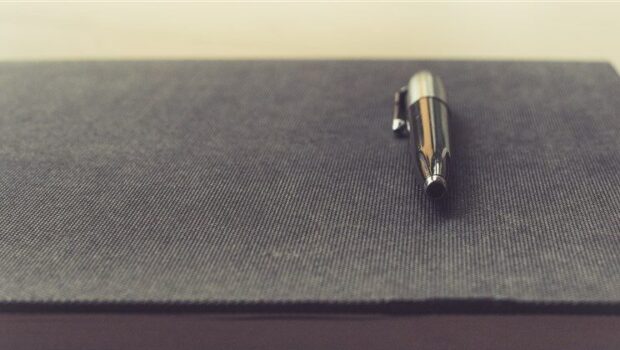
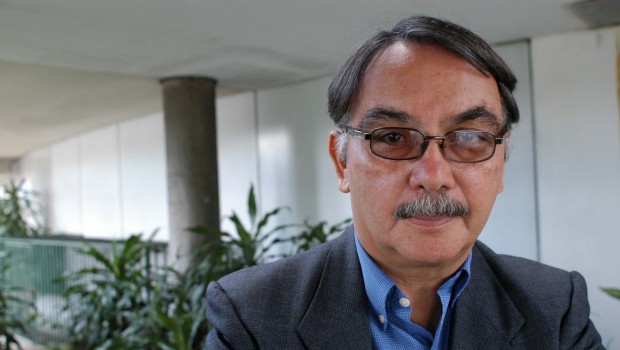

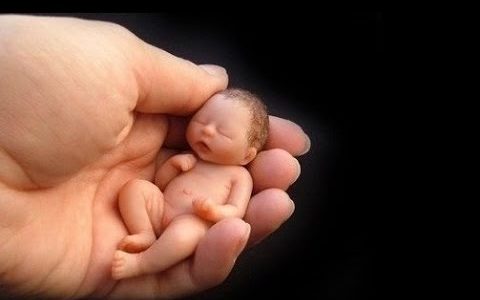
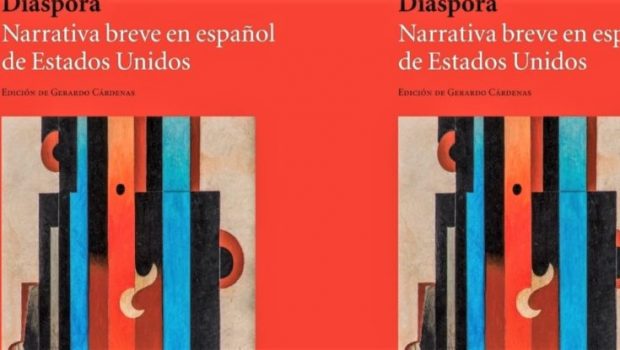
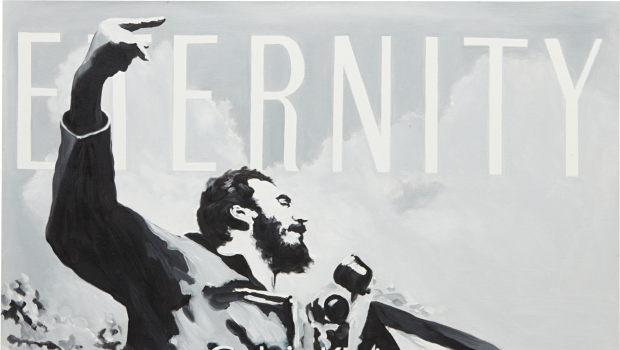
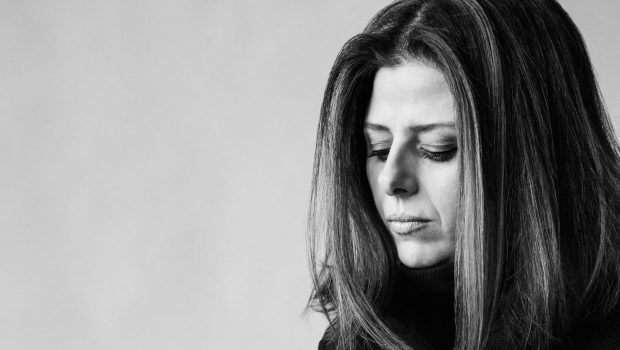
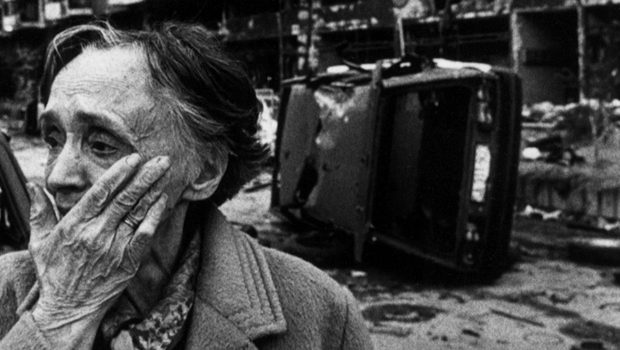

Qué maravilla. Gracias al cielo comienzan a decirlo grandes autoras. Muy necesario. Los hay también quienes, aunque lo necesiten por su humanidad, no requieren la socialización con otros escritores, y quizá el mismo trayecto los enlace con algunos, mínimos, pero eso no es regla sobre su genialidad/crencia, tampoco tendría que ser motivo para no publicarlos. El otro gran problema de la creatividad suelta así nomás al desborde del “todosepuedeytodospodemoshacerlotodomientrasvenda” es que hay ideas, una moral intelectual, que, si no se comparte, es una cerrazón de puertas. Todos son la buena onda revolucionaria, lógica inclusiva y culta. Mucha corrección política. Poca individualidad y expresiones sinceras. Poca literatura.